Frequently Asked Questions
The Wisconsin Institute for Discovery is a research institute on the campus of the University of Wisconsin-Madison that was built to develop a new approach to science driven by unlikely collaborations among outstanding research minds. Strengths in AI and Health, Engineering for Life, and Systems Optimization enable WID to advance basic research and rise to grand challenges. Read more about us.
WID is experimenting with new ways to engage a very broad community in solving problems with science and engineering tools. WID has built expertise in AI and Health, Engineering for Life, and Systems Optimization, which it applies to ambitious challenges.
WID is particularly expert in a few areas of science, engineering, and math. Many other researchers across campus also have expertise in these fields and others would like to make use of the tools offered by these fields. WID and its hubs serve as catalysts for interactions among campus researchers and provide consulting services for those seeking to apply tools in areas of WID expertise.
WID is currently funded by university funds, grants, and gifts, just like the rest of campus. While this funding has supported WID’s growth and innovation, the absence of an endowment poses a challenge to ensuring long-term stability and success. Establishing an endowment would provide the critical, sustainable support needed to secure WID’s future and expand its impact for generations to come. If you are interested in making a gift to support WID’s research and programs, please visit our support page. We welcome gifts of any size.
The first floor of the Discovery Building, also known as the Town Center, as well as the embedded teaching labs on the 2nd and 4th floors are open to the public during certain hours and can be accessed for self-guided tours, dining opportunities, and reserved for events such as workshops and lectures. WID’s research space is accessible to building occupants with key card access or to visitors by permission.
WID is similar to, but also different from other institutions and centers around the country. Like the MIT Media Lab and the University of Michigan’s Center for the Study of Complex Systems, WID draws on the strength of a top-tier research university and its excellence in science, engineering, the humanities, and entrepreneurship. WID shares a computational focus with several other research institutes embedded within universities (e.g., the Broad Institute at MIT/Harvard and the Clark Center at Stanford). But WID has unique features—it has adopted the mission of serving as an innovation catalyst for the UW-Madison campus research community, and WID embraces the singular tenet of Wisconsin, the Wisconsin Idea, which describes the rich tradition of engagement of campus researchers with the people of the State of Wisconsin. WID is also unique in its cohabitation with the private institute, the Morgridge Institute for Research, and the robust outreach programs of the Town Center.
WID’s staff members have expertise in a range of fields and are affiliated with diverse departments on campus, including mathematics, social and natural sciences, engineering, and the arts. You can email experts from WID’s directory and contact WID’s Communications Office to ensure your inquiry receives attention in a timely manner.
You may find collaborators in WID’s directory or get in touch with an administrative contact linked to a program or event that interests you. You may also contact us with questions.
WID is a new kind of research institute that, in addition to generating research publications, creates software tools and platforms, hosts conferences and symposia, develops educational materials, and has generated startup companies such as Galilei Biosciences, Wacasa Pharmaceuticals, and Neurosetta. You can read more about our projects in the website’s stories section and in our most recent annual report.
WID was founded on the idea that unexpected and novel collaborations can yield amazing insights. We welcome creative minds from all disciplines that can contribute ideas to the WID mission. Formal appointments at WID are by nomination and follow a period of active engagement with the Institute’s researchers. You can search for collaborators through WID’s directory or attend the Institute’s events.
WID is a research institute that provides a terrific training environment for researchers, but does not grant degrees. The Institute is home to many undergraduates, graduate students, and postdoctoral researchers working in WID labs.
Along with WID, the Discovery Building is home to the Morgridge Institute for Research and a public facing first floor known as the Town Center. This central space is where campus, community and industry gather to celebrate idea sharing through conferences, poster sessions, banquets, receptions, lectures & outreach programs. Event spaces and reservations are managed by the Wisconsin Union Discovery Building events team.
Several of the youth-facing and family public engagement programs such as field trips and Saturday Science are hosted by the Morgridge Institute, while WID’s Illuminating Discovery Hub is home to collaborative public programs such as Crossroads of Ideas, SoundWaves, and the Wisconsin Science Festival.
Between the two research institutes, cohabiting not only helps facilitate breakthrough discoveries to advance human health, but also provides shared opportunities to spark public dialogue and curiosity within our broader community.
Commercial Photo and Film
Projects involving commercial photo and film (such as photo/film taken for publications, catalog shoots, commercial videos and the like) please contact Tricia Nolan at University Marketing (tricia.nolan@wisc.edu or 608-265-9005) to review campus commercial use policies and location agreements. She will work with the Discovery Events team at the Discovery Building to set guidelines for your project.
Non-Commercial Photo and Film for Personal and Class Use
No approval is required, please adhere to the following guidelines:
• Photo/film sessions are limited to the first floor;
• Photo/film sessions are limited to a maximum of 2 hours;
• You are not permitted to take photo/film of other visitors.
• You can expect other visitors in any area at any time, photo/film sessions do not take priority over other visitor activities.
• You can expect other events to be taking place at any time, photo/film sessions do not take priority over other events.
• You are not permitted to stanchion off an area for exclusive use.
• In the event you would like to apply to reserve an area for exclusive use, an additional application process and fee is required.
• Identifying building logos, including restaurants and all entities may not be included in any photo/film.
Permission for any photography on floors B, 2, 3 and 4 is by the Principal Scientist’s or the Communications Department discretion only.
You may contact UW conference services to learn about renting space in the Discovery Building, including the ground level atrium spaces, the H.F. DeLuca Forum, and the Teaching Labs.
WID logo
The WID logo consists of a stylized compass rosette and a wordmark in Trajan Pro 3. The black is r0 g0 b0 (#000000) and the red is r185 g0 b20 (#b90000). The proportions of the logo must not be distorted. If there is a version you do not see here, please contact media@wid.wisc.edu. In limited circumstances, such as the need to use the logo in a size that would be too small to read the words, it is acceptable to use the WID acronym logo or the WID simple acronym logo.


